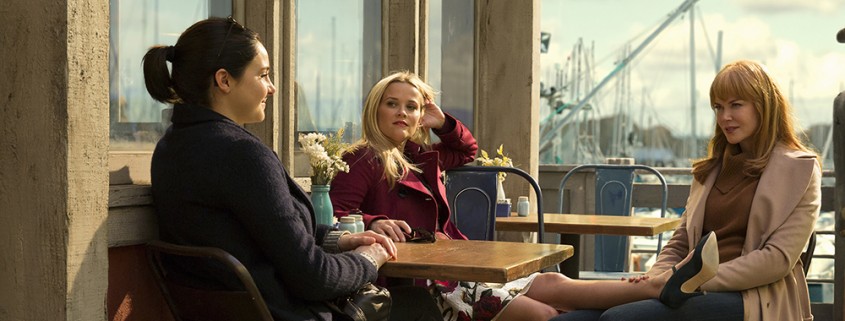COLUMN: HBO’s Big Little Lies transcends housewife stereotypes
 Rich, spellbinding and utterly original, creator David E. Kelley’s Big Little Lies is the kind of show that makes you excited for the future of television. And by original, I don’t mean its content (the series is based on the eponymous novel by Liane Moriarty) — I mean the way the story is told. Murder, moneyed Monterey, mothers: It all may seem familiar, but still, this HBO series is unlike any television show I have ever seen.
Rich, spellbinding and utterly original, creator David E. Kelley’s Big Little Lies is the kind of show that makes you excited for the future of television. And by original, I don’t mean its content (the series is based on the eponymous novel by Liane Moriarty) — I mean the way the story is told. Murder, moneyed Monterey, mothers: It all may seem familiar, but still, this HBO series is unlike any television show I have ever seen.
Another installment in the new brand of female-driven shows that absolutely refuse to put its characters in a box, Big Little Lies listens closely to its protagonists, does not mock them for what they want and catapults what could have been droll or comedic into something indescribably rich and nuanced.
For opening with a pilot that ran like one continuous A-story, Big Little Lies is deliciously layered. It tantalizes, with an allure that can only be cultivated by a palate of practiced and acclaimed actresses, splashed across the backyard beaches of the Pacific coast and thrown into the context of murder.
But though the promise of Big Little Lies is all of those things, it is also none of them. Examined alone, each of these components would prove seemingly uninteresting: a story about moms, a story about Monterey, a story about a killing. Put together, it’s enough potential for cheese to pack Days of Our Lives a mean punch.
But go there, it does not. Big Little Lies destroys perceptions of mothers, perceptions of women — especially women who society already loves to deride: the Monterey mom, the wealthy housewife, the twice-married woman. Normally categorized into the Melania Trump archetype, wealthy women are often depicted as selfish and materialistic, readily willing to let their lives ride on the success of their husbands.
But in Big Little Lies, that is not the case. With her husband in line with her children at dinner, Madeline (Reese Witherspoon) sits at the head of the table.
These Monterey moms run the show. They love their children and will do anything for them. And yes, wealthy women are hardly the demographic who need the most defending in American society — but consider also the implications of putting every woman like Madeline, Celeste (Nicole Kidman) and Jane (Shailene Woodley) in a box. It gets us nowhere. And the same vein of criticism that begs audiences not to take rich women seriously is actually a coded instruction not to take any woman seriously.
And besides, as we see in the police’s questioning of different parents about the body on the beach, women aren’t the only ones involved in the rumor mill here. Dads are also quick to point out and belittle their fellow Monterey parents.
In Big Little Lies, money is no longer flashy — it is simply the world of the show. And for this series, the world is everything: It’s more enticing than the smell of perfume. It’s that unspeakably compelling aura that propels the series into sophistication, that highlights the subject matter — women — as something worth more than anyone will give them credit for.
Over the decades, television has made it so easy to make fun of women, so easy to laugh at what they want and how they feel, but Big Little Lies adamantly refuses to do that. Less about every detail of its subject matter than the impressive and ubiquitous tone the show concocts, to call it engaging would be an understatement.
Big Little Lies throws its characters and audience past convention or any boundary that is used to define television. And with the inception of evolving formats for shows popping up every day, these boundaries are growing until they’ll one day disappear.
Make note: Here is a landmark show. It will change everything.
Zoe Cheng is a sophomore majoring in writing for screen and television. Her column, “Wide Shot,” runs Wednesdays.

